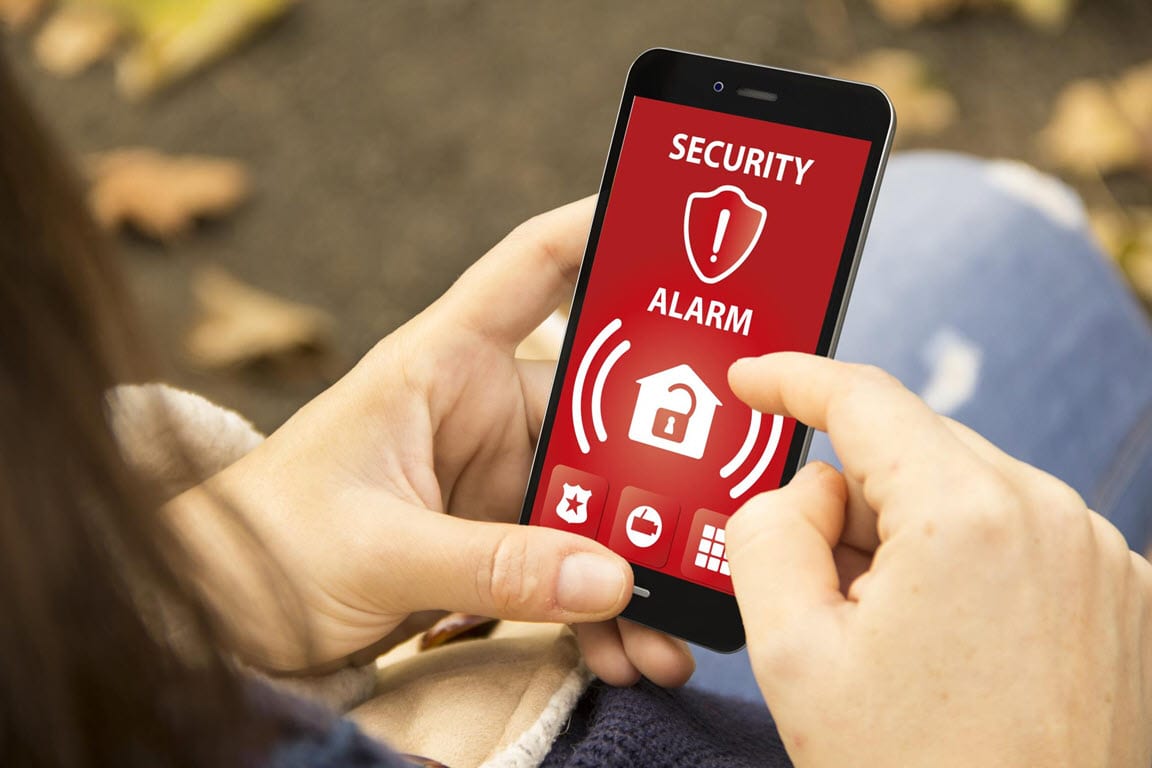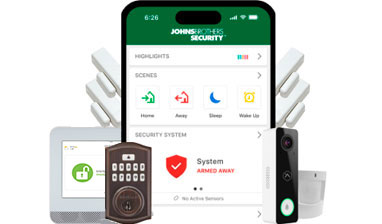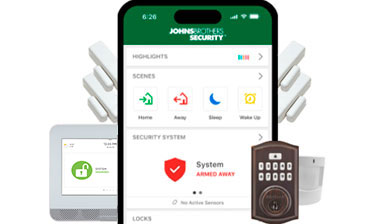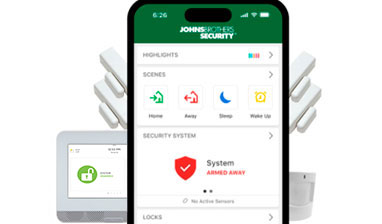
If you have a home security system, chances are you’ve experienced a false alarm. In fact, 95% of police responses to security system alarms are actually false alarms. They can be triggered based on several things, but often false alarms are due to user error.
Below are some ways that you can reduce occurrences of false alarms in your home.
Preventing User Error
Create an alarm code that everyone in the home can easily remember but one that a burglar couldn’t easily guess.
Take your time entering your password to ensure you enter the right one and double-check the password you provide to anyone else who may be using your security system.
You should also ensure that you are up-to-date on your verbal security passwords so if your alarm is falsely triggered, you can quickly remedy the situation.
Keep a Clear Area Around Motion Sensors
Moveable objects such as balloons, curtains, decorations, and pets can set off motion detectors. If you’re leaving your home for an extended period, plan accordingly, so those areas aren’t set off by motion.
With a smart home security system, you can see what’s happening even when you’re not at home. So you can keep an eye on your home and pets and even turn off the alarm all from your smartphone when a non-threatening object triggers your alarm. Some smart systems have special detections and settings if you have pets so that you can adjust sensitivity levels based on your pet’s size and weight.
Unsecured Doors and Windows
If you don’t fully secure doors and windows before arming your system, it could cause the system to trigger a false alarm. It’s important to ensure that your home’s windows and doors are fully closed and locked before arming your security system.
You can also test closed/locked doors and windows by pressing on them and jiggling doorknobs. If they are loose and go more than two inches past the frame/pane after being locked, consider having them repaired.
Glass Break Detectors Sensitivity Function
Glass break detectors are great for an added layer of security. In addition to sounding the alarm when glass is broken, they are also designed to trip with other loud noises like a door being kicked in. However, dogs barking, furniture falling over, or cats tipping things off counters have also been known to trip the sensor. Make sure you speak with your security technician about the sensitivity of your glass break detectors and what has the possibility to set them off.
Let Visitors Know About Your Security System
When guests visit for the weekend or a friend comes over, be sure to let them know about your system too. For guests that will be staying with you, it may be a good idea to train them on how to arm and disarm the system so they aren’t fumbling with the code while the system is counting down or the siren is going off. Keeping everyone in the house aware of your security system helps prevent false alarms from happening.
Be Aware of Storms in Your Area
Sometimes storm systems like hurricanes, tornadoes, or even a heavy thunderstorm can set off an alarm by tripping a motion detector, setting off a glass break detector, or blowing open your door. Stay up to date on severe weather in your area, and keep a close eye on your security system when an active storm passes through. Adjust your security system as needed. Turning off window sensors when a big storm is in the area can help prevent false alarms.
If you have additional questions about false alarm tips, our security professionals can help. CLICK HERE to speak with one of our Johns Brothers Security experts today!

Our most complete package features protection, automation, and video delivered to your smartphone.

Our most popular smart security package features more than protection – it’s your pathway to home automation.

The essential security package features affordable protection with a wireless connection.
Get a free consultation and the latest smart home security tips & tricks